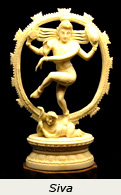Asia

Bhakti Poets: Poem, Akkamahadevi 2
Bhakti poets—who were in some cases lower-caste Hindu women—and their audiences drew emotional sustenance from these verses, which expressed a pure devotion to Hindu deities.

Bhakti Poets: Poem, Akkamahadevi
Bhakti poets—who were in some cases lower-caste Hindu women—and their audiences drew emotional sustenance from these verses, which expressed a pure devotion to Hindu deities.

Bhakti Poets: Poem, Mirabai 4
Bhakti poets—who were in some cases lower-caste Hindu women—and their audiences drew emotional sustenance from these verses, which expressed a pure devotion to Hindu deities.

Bhakti Poets: Poem, Mirabai 3
Bhakti poets—who were in some cases lower-caste Hindu women—and their audiences drew emotional sustenance from these verses, which expressed a pure devotion to Hindu deities.

Bhakti Poets: Poem, Mirabai 2
Bhakti poets—who were in some cases lower-caste Hindu women—and their audiences drew emotional sustenance from these verses, which expressed a pure devotion to Hindu deities.

Bhakti Poets: Poem, Mirabai
Bhakti poets—who were in some cases lower-caste Hindu women—and their audiences drew emotional sustenance from these verses, which expressed a pure devotion to Hindu deities.

Bhakti Poets: Poem, Janabai
Bhakti poets—who were in some cases lower-caste Hindu women—and their audiences drew emotional sustenance from these verses, which expressed a pure devotion to Hindu deities.
Meng Ch'iu, Empress Ma in coarse-woven silk
"Meng Ch'iu" translates as "Beginner's Guide." This text by Li Han, who lived during the early Tang Dynasty (618-907), presented the stories of famous figures in China's history and legendary tales.
Meng Ch'iu, K'uang Heng bores a hole in the wall Sun Ching shuts his door
"Meng Ch'iu" translates as "Beginner's Guide." This text by Li Han, who lived during the early Tang Dynasty (618-907), presented the stories of famous figures in China's history and legendary tales.
The Story of the Stone
Many adult voices advocated the need for a good moral upbringing as part of a rigorous education for children during the later Ming and Qing dynasties, an aspect seen in the primers that were repeatedly published during this period.